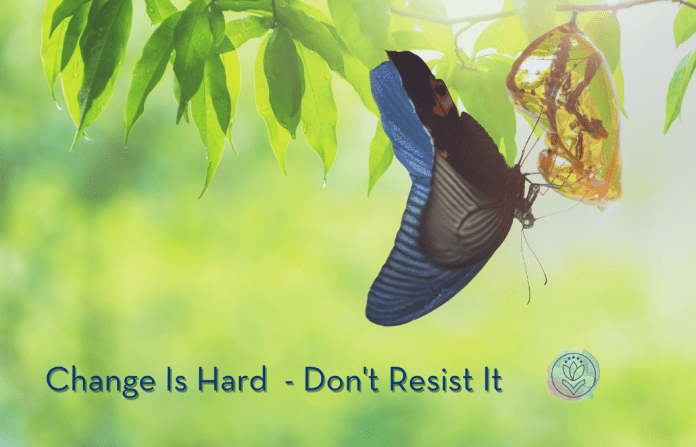“Why do we have to move again?” my 10 year-old asked, demanding an answer.
“Well, because the Army gave us orders to move to Germany,” I calmly explained.
“I’m not going. I refuse to move to Germany,” she stated matter-of-factly.
“That went well,” I told my husband later that day. “Kids seem to really be on board,” I added in a sarcastic tone.
“Can you blame them though?” he asked. “I mean, can you imagine leaving all your friends, moving to a foreign country, and having no idea what to expect?”
No, I thought. I have no idea what that must be like (insert eye roll). Was he being rhetorical in his question? I still don’t know.
 Change is something we have come to expect in this military life.
Change is something we have come to expect in this military life.
I always give the same response when I hear about families who have been at the same duty station for at least five years. “What? That’s such a long time!” Yes, five years (dare I say more than five years?) at a duty station is fairly unheard of.
So why is it that despite knowing we will have more change than the average person, we still resist it?
We pray that the orders never come. We hope that our kids can stay in the same school for all three years of junior high. We wish that won’t have to give up this friendly neighborhood or find a new dentist, hair stylist, babysitter, house cleaner, mechanic, veterinarian, pizza place, gym, daycare…
Because if that truncated list was any indication of the amount of work change requires, it’s a reminder that our brain remembers. It remembers all the mental work that goes into navigating a move. It remembers all the emotional exhaustion that goes into goodbyes. It remembers all the financial flexing we have to do before, during, and after a PCS.
This all adds up and ends up taking a toll on us physically.
Have you ever asked yourself, “Why am I so tired?” when you’ve only thought about an upcoming move? Why does that happen? Using that mental energy translates into using physical energy (on the cellular level). Our brain and our body are inextricably connected. It’s why we can get sick during this process. Our minds are under so much stress, and we rarely take a moment to process that. Instead, we stuff it down (“I ain’t got time to deal with that!”). But the body needs to process. Ever notice after a big test or presentation you get sick? Because you’re finally relaxing and your body is like, oh now I can finally release all this stress!
When our brains can’t easily predict our days, it goes into a type of hypervigilance mode, scanning the scene for any semblance of predictability. Even though we no longer live with the threat of being eaten by a lion, the primitive parts of our brain haven’t quite caught up to that. So despite knowing that every Monday, Wednesday and Friday, you do carpool, it suddenly freaks out when that schedule is disrupted. Our brain doesn’t know what to expect when plans change. And that is an unsettling feeling.
CHANGE IS HARD because it requires so much energy from our brain. And that takes a toll on us physically and mentally. When we resist change, it sucks up even more energy.
Later that day, when my daughter was ready to talk about our upcoming move, I used an analogy to help her understand this process. “I want you to imagine you’re in the pool. And I toss you this big beach ball that’s blue and yellow. Now, what would happen if you put that ball under the water?” I asked her.
“It would float back up,” she replied.
I continued, “OK, but what if you tried to keep it under the water. Could you do it?”
She shrugged, “I guess, but it would be hard.”
I smiled, “Yes! You would use up a lot of energy trying to keep that ball under water. What if you, instead, let the ball come up to the surface and played with it? Just did what you wanted with it?”
She thought about my question and said, “Yeah. I mean, I guess it’d be more fun.” I was hoping she was starting to see the connection.
“What if,” I asked, “instead of resisting this move to Germany, you made it your own? You focused on the things you can control and decided that yep, there’s going to be a lot of things you don’t know, but there’s a few things that are going to be fun?”
She didn’t respond right away, so I quickly threw in, “Just think about it, OK?” She nodded her head that she would.
It’s not that I wanted my daughter to suddenly be super on board with our international move (OK, maybe a little). My desire was for her to understand that it was normal to resist change, then empower her with the opportunity to make this move literally and figuratively her own.
I’m happy to report that 2 ½ years since we’ve moved here, she’s actually glad we did. It hasn’t been smooth sailing, but what military move ever is?
Change is inevitable in any life, and it is normal for it to be challenging.
It’s how we approach and face it that can make it less strenuous on our bodies and minds. And hopefully, we can help our kids learn this, too.











